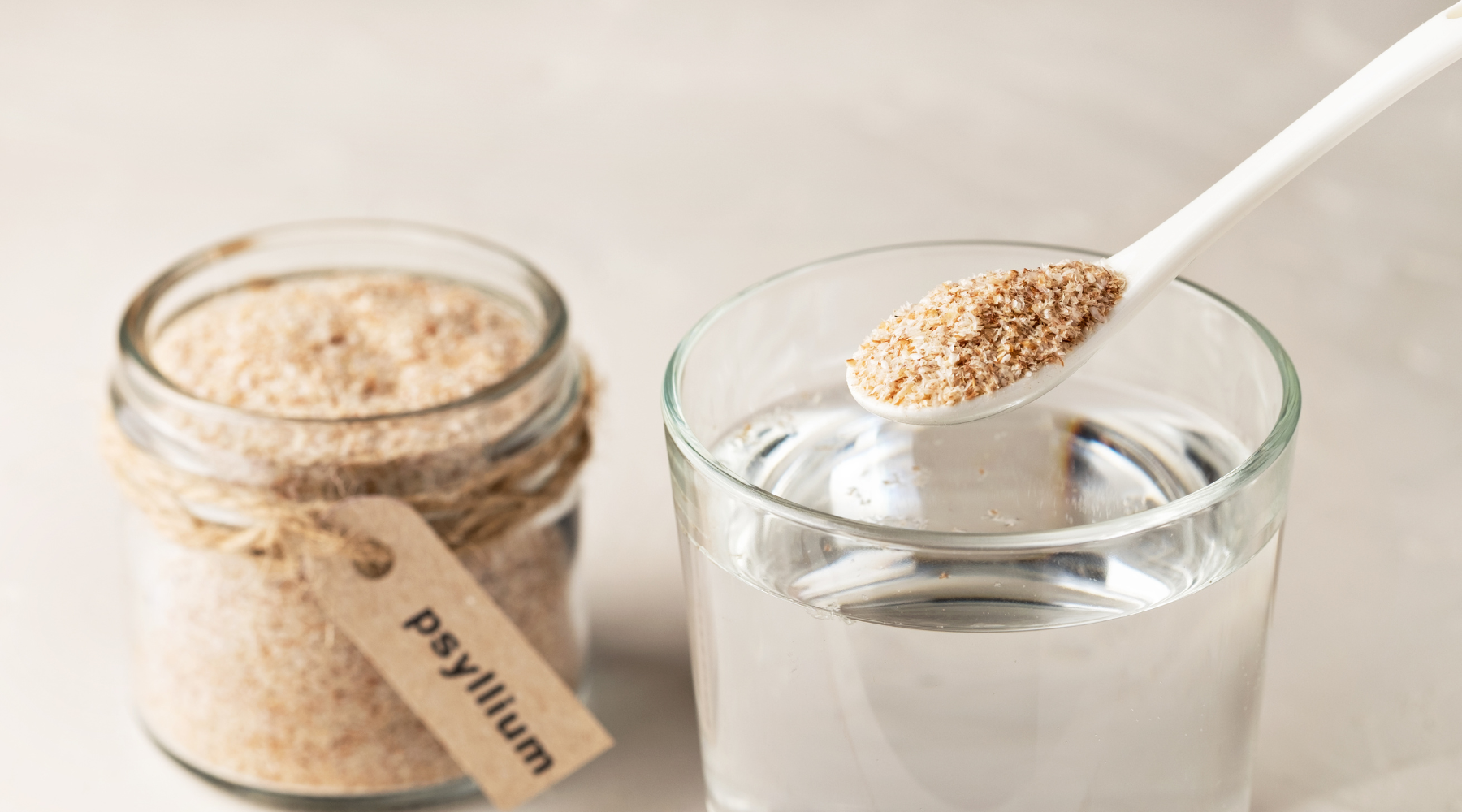Article: Will Psyllium Help Me Lose Weight?

Will Psyllium Help Me Lose Weight?
Psyllium is derived from the botanical plant, Plantago Ovata, which can be used as a weight-loss remedy. Psyllium produces husk which contains an abundance of soluble fiber also known as mucilage. Mucilage thickens into a gel form when mixed with water.
When psyllium enters our digestive tract, it absorbs water, which renders stool soft, hence an easier evacuation.
Will psyllium suppress my appetite?
Since Psyllium is considered a soluble fiber, which can also be found in high-fiber foods such as legumes, fruits and seeds, it can also help regulate blood sugar levels and cholesterol. On the other hand, as an appetite suppressant, when psyllium expands in the gut, it creates a feeling of fullness, hence suppressing appetites. With that said, you will eat less which will help with your weight loss.
Furthermore, the use of psyllium fiber has become common use for relieving constipation, assists with IBS (irritable bowel syndrome) symptoms and helps regulate blood sugar levels (ideal for diabetics). It has also been shown to help with those suffering from diarrhea, since psyllium will tend to firm up loose stools.
The recommended daily intake for fiber in the United States is 38 and 25 grams for men and women respectively (under 50 years of age). Men above 50 years of age are required to take 30 grams while women above 50 years of age are required to 21 grams. However, most people do not
A 2016 research published in the Appetite Journal 1 demonstrated that the daily consumption of psyllium for a period of three days made participants less hungry while increasing a feeling of being full between meals compared to the control group. According to Brum et al., their study showed that a daily psyllium dose of 6.8g provided consistent satiety compared to a placebo. Psyllium was administered in three doses – 3.4g, 6.8g, and 10.2g.
Another 2016 study 2 conducted by Abutair et al. and published in the Nutrition Journal demonstrated that Type 2 diabetes patients who were given 10.5g of psyllium on a daily basis for 8 weeks had a reduced their BMI as compared to those who ate their regular diet. Also, there was an improvement in insulin levels, fasting blood sugar, and other blood markers.
What are the side effects?
Psyllium is safe when used appropriately and according to your physician's directions. However, in some cases, you may experience some side effects such as abdominal pains, nausea, bloating, and diarrhea, and gas.
Allergic reactions do occur even though they are very rare. Consult with a family physician if you experience the following symptoms:
- Itchiness
- Difficulty in swallowing or breathing
- Pains in the abdomen
When taking psyllium, it is best, to begin with a small dose and then gradually increase over a period of one to two weeks until you attain the recommended dosage. When using a powder format, ensure that it is well mixed with the right amount of water (a teaspoon may be mixed with eight fluid ounces). When properly hydrated, your stool will remain soft, rendering an easier bowel movement.
Psyllium is contraindicated in individuals with abdominal problems such as spasms of the stomach, stomach obstructions, appendicitis, colorectal adenoma, or an obstruction of the gastrointestinal tract. Individuals with kidney disorders may also be unable to take psyllium.
Conclusion
Studies have demonstrated that psyllium may help in weight lose since it will assist in suppressing your appetite. It is important to consume psyllium along with a healthy fiber-rich diet to gain the maximum health benefits. However, should you have any pre-existing health conditions, it is always wise to consult your physician.
References
- Brum JM, Gibb RD, Peters JC, Mattes RD. Satiety effects of psyllium in healthy volunteers. Appetite. 2016 Oct 1; 105:27-36.
- Abutair AS, Naser IA, Hamed AT. Soluble fibers from psyllium improve glycemic response and body weight among diabetes type 2 patients (randomized control trial). Nutr J. 2016 Oct 12; 15(1):86.
- Akbarian SA, Asgary S, Feizi A, Iraj B, Askari G. Comparative Study on the Effect of Plantago psyllium and Ocimum basilicum Seeds on Anthropometric Measures in Nonalcoholic Fatty Liver Patients. Int J Prev Med. 2016 Oct 10; 7:114.
- de Bock M, Derraik JG, Brennan CM, et al. Psyllium supplementation in adolescents improves fat distribution & lipid profile: a randomized, participant-blinded, placebo-controlled, crossover trial. PLoS One. 2012; 7(7):e41735.

